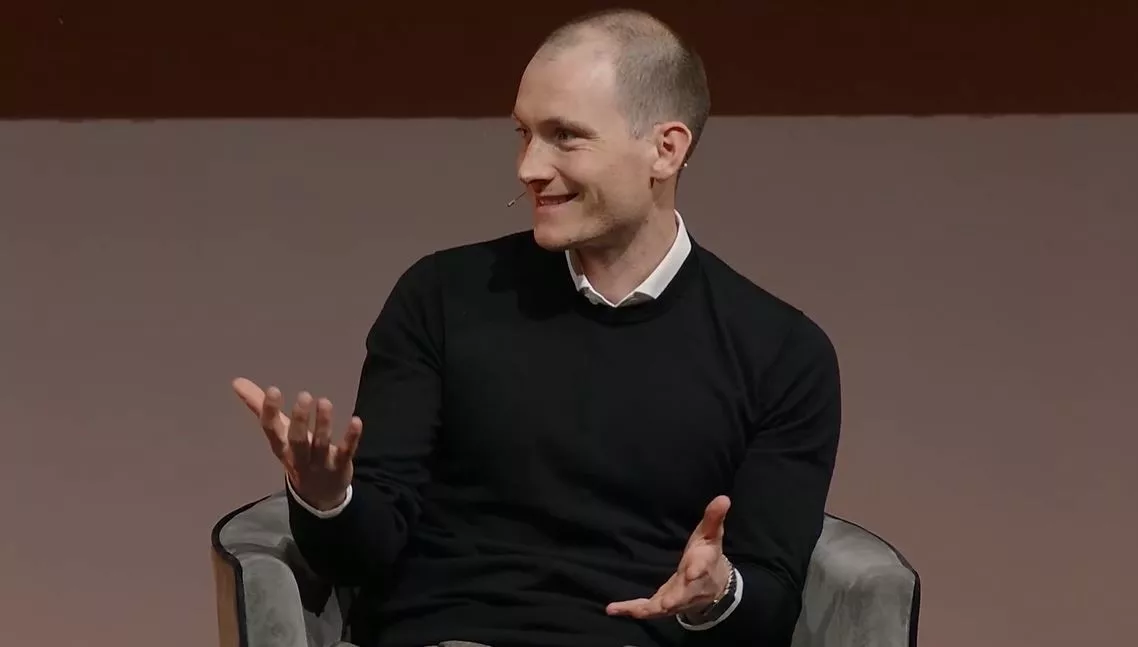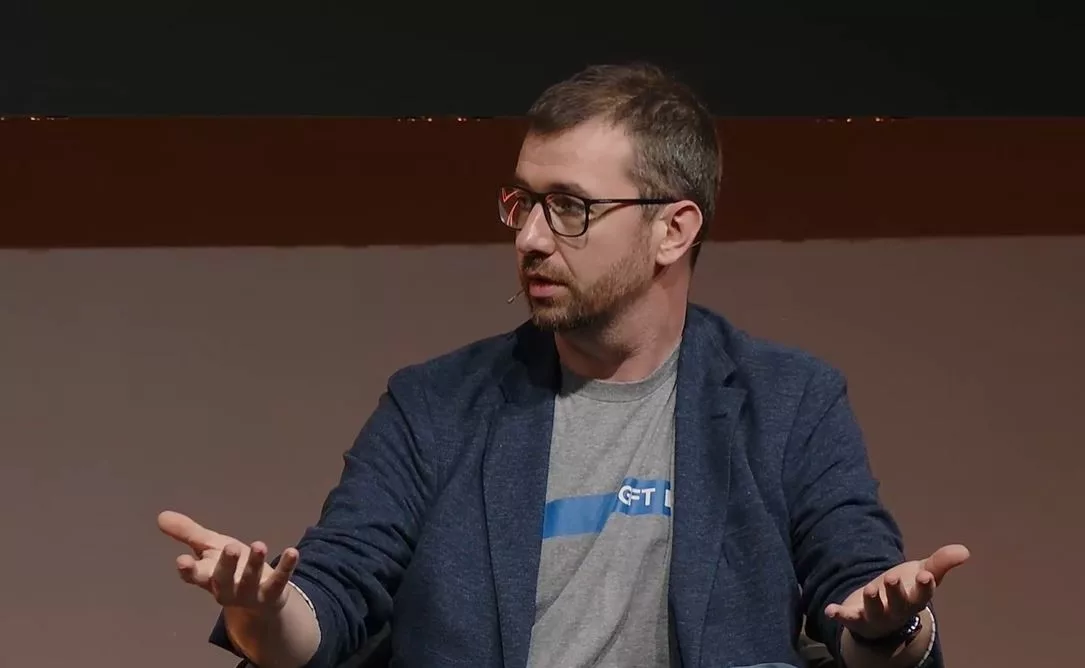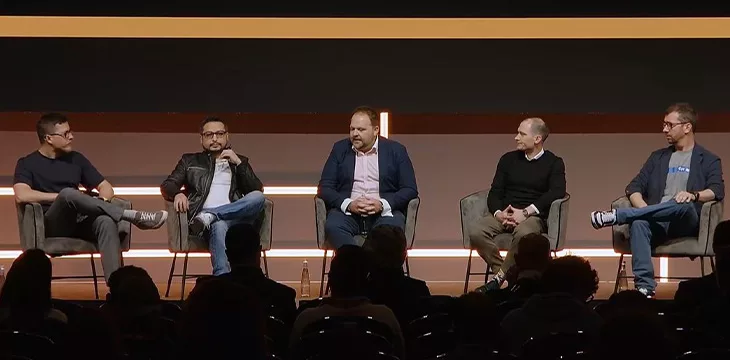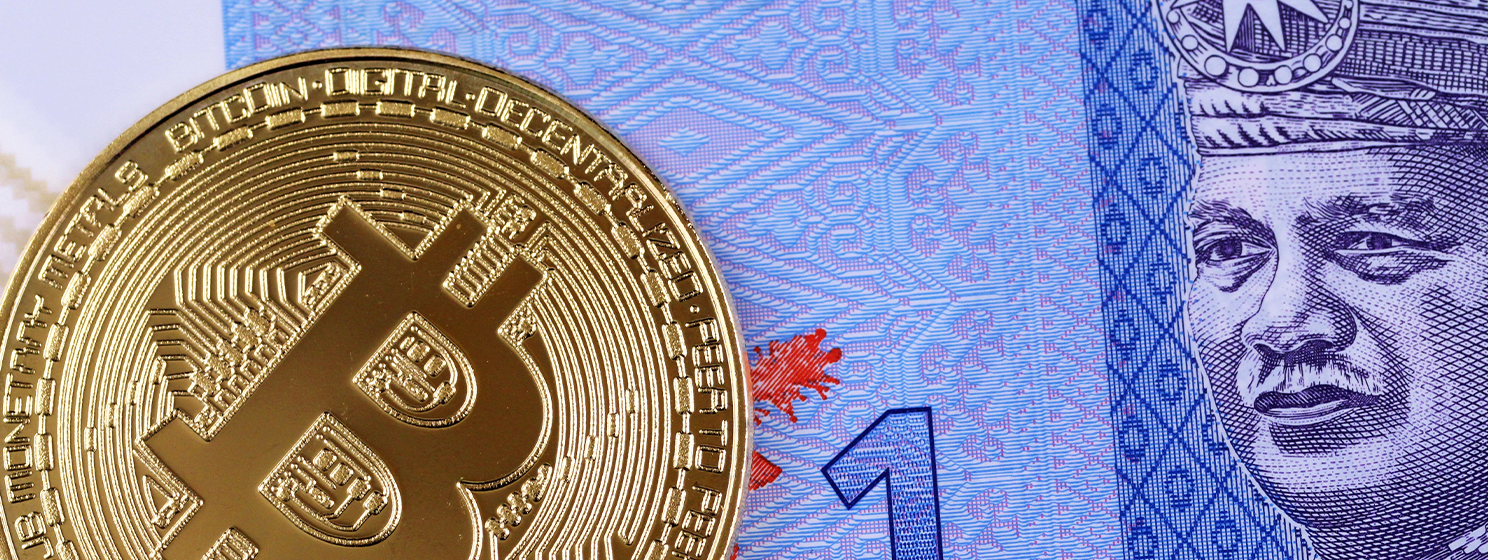Tokenization is a hot topic in the blockchain world right now. At the London Blockchain Conference 2024, the CEO of DCM, Ross Kolodiazhnyi, hosted a panel on tokenizing real-world assets. Panelists included:
- CEO and co-founder of Brickken, Edwin Mata
- Global DLT, Crypto, and E-Money Lead at GFT, David Creer
- Co-founder and CEO of Splintinvest, Aurelio Perucca
- Chief Strategy Officer at Bitrue, Robert Quartly-Janeiro

What direction in tokenization is most interesting to you?
After a brief summary of what tokenization is and its potential use cases, Kolodiazhnyi asks the panelists for their opinions on what it’s being used for and what they find most interesting.
Mata says the biggest initial trend was stablecoins, but it’s now treasury bills and financial instruments. He characterizes this as a move along the risk curve. As BlackRock and other big institutions jump in, this will only become a bigger trend.
Quartly-Janeiro believes tokenized real estate and infrastructure represent the most significant opportunity. Real estate represents trillions of dollars worth of assets. Thanks to tokenization, accessibility will improve and could become global in nature.

Perucca is interested in how tokenization is unlocking “passion investments” like art, antiques, etc. He believes it will bring liquidity into these assets and the funds that hold them.
Creer notes that tokenizing securities like stocks is the next step after digitization. He notes that certain things, like high-frequency trading, aren’t possible on most blockchains yet due to scaling limitations. Physical items like collectibles, metals, etc., are coming and will require digital twins.
What are the challenges associated with tokenizing real-world assets?
Creer talks about how his firm worked with VP Bank in Lichenstein to tokenize physical art. They embedded non-public information in the tokens to make it verifiably real. RFID tags, 3D scans, and other measures can be used for the same reasons. Clearly, verifying authenticity is one of the issues.
Why would people want to buy tokenized real estate rather than do things traditionally? Quartly-Janeiro looks at it from the other side; offering tokens could allow nations to raise funds to build infrastructure. He gives the example of Egypt offering a token to raise $1 billion for a bridge. Collecting fees from tolls and distributing them to token holders could incentivize them to buy.

Perucca says tokenization democratizes access to assets that may have been out of reach. For example, people may be able to own part of a Picasso painting. Cars, handbags, and other collectibles can be tokenized similarly. In many cases, these assets will have an emotional connection as well as a speculative purpose.
Could tokenization lead to unforeseen consequences, such as market crashes or other disasters?
Mata assures us that regulations will still apply, just as they did when assets were first digitized. Tokenization is a new way of doing things, but it doesn’t fundamentally change the rules.
Creer reminds us that regulations are specific to regions, asset classes, etc. Some regulators are progressive and move quickly, while others are slow. They will play a key role in how quickly rules are established.

Quartly-Janeiro notes that while tokenization can bring about greater transparency, it doesn’t always do so. Offshore entities can own tokens, too, and they won’t necessarily have to make themselves known. Multiple parties based all over the world could also own a piece of anything, making it difficult to regulate.
Is all of this really about innovation, or is it just another way to speculate? Mata says the two go hand in hand, and Perucca conveys it’s a difficult question to answer, but the user needs to understand any legal differences between tokens and other assets, as well as why it has been done and what the added value is.
Watch: Tim Draper talks tokenization with Kurt Wuckert Jr.

 02-21-2026
02-21-2026 




